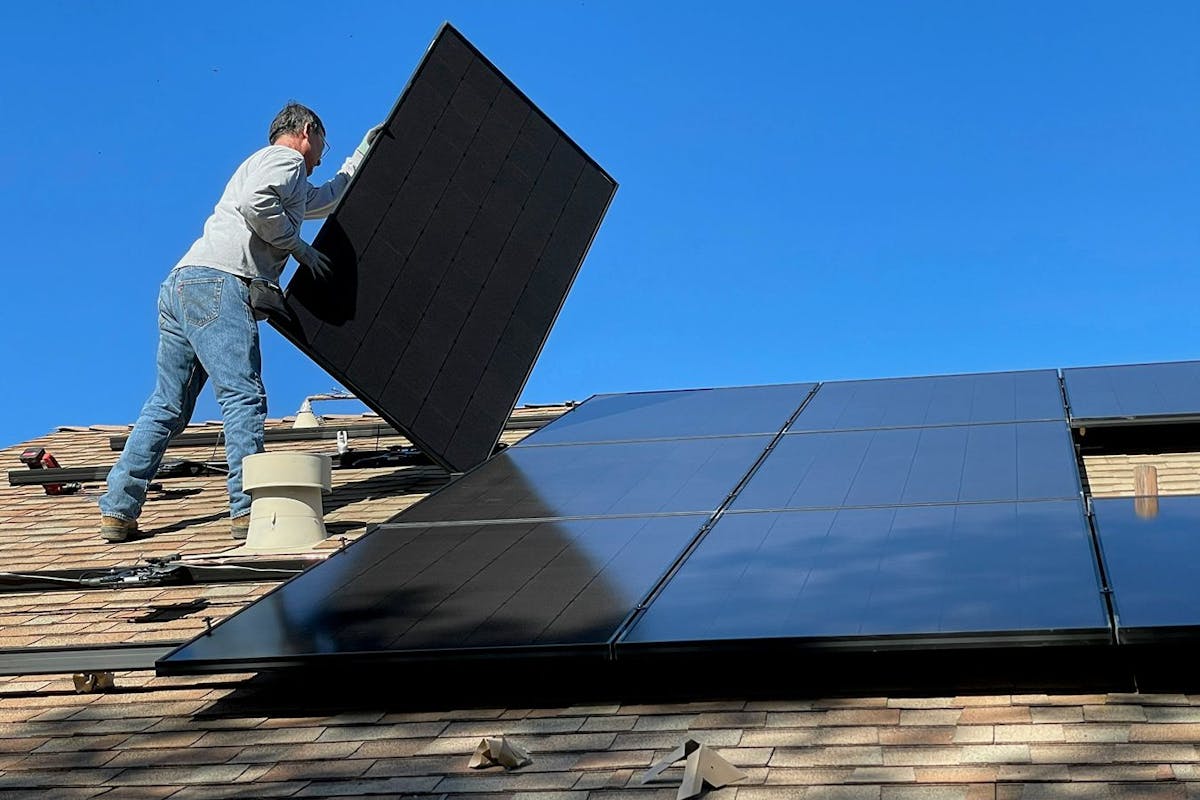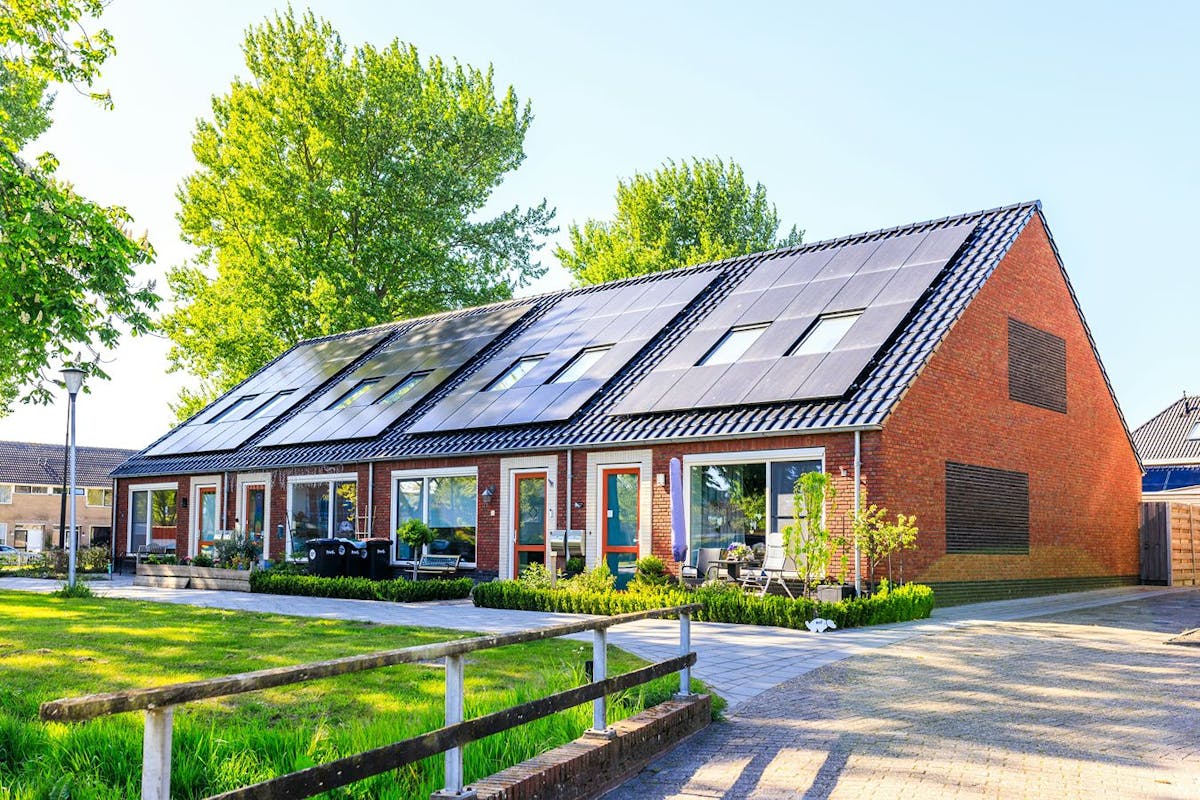Free Solar Panels: What Does It Actually Mean?
Last edited
Author
Andrew Giermak
Solar and Electrification Writer and Editor
Editor
Andrew Blok
Electrification and Solar Writer and Editor

You've heard there's no such thing as a free lunch, but what about free solar panels? Unfortunately, there's probably no such thing as those, either.
You may have seen free solar panels advertised, but those ads probably refer to ways of going solar that might be more accurately described as "free upfront." If you're looking to go solar, and come in contact with an offer of free solar panels, here's what you need to know, and how to spot a promise that's too good to be true.
See how much you can save by going solar with Palmetto
Is There Such a Thing as Free Solar?
No.
Unfortunately, there’s no real way to have someone gift you solar panels and all the work it takes to install and interconnect them.
There are ways to make solar panels cheaper, including government incentives, and ways to increase the savings from solar panels, like net metering and solar renewable energy certificates.
There are also ways to get solar panels without paying for them up front, but these methods can’t accurately be called “free” even as they open the door to solar panels to many more people.
Leasing Solar Panels for $0 Down
One way to get solar panels without an upfront payment is a solar lease.
- Solar lease: You pay a flat monthly fee to lease your solar equipment, and you get to use the electricity those panels generate.
If you come across an advertisement for free solar panels, see if it’s a solar lease in disguise. While installation might be free, a lease comes with ongoing monthly payments.
With a solar lease, you don’t own the solar panels. You simply pay each month for their use. Those payments cover the use of the equipment, maintenance, and service, too. Solar leases, like one from Palmetto LightReach, often come with proactive monitoring — with the Palmetto App — and service, designed to catch issues with your solar panels before they become problems.
Solar leases come with real benefits. They can save you real money over their lifespan and, while they’re not free, offer a lower financial barrier to entry than a cash purchase or loan.
See how much you can save by going solar with Palmetto
Buying Solar Panels with a Solar Loan
A solar loan might also allow you to go solar without making any upfront payments. With a loan, you’ll also make regular payments, which will cover the principal and interest of the loan. Solar loans can also deliver savings over their lifetime, but you’ll need to pay attention to loan fees and interest rates, which could eat into your savings.
Which Way of Going Solar Is Best?
Depending on your situation, it can be best to opt for a lease or loan that lets you go solar for no money down or to buy solar panels with cash. The best option is the one that best fits your needs. Here’s how the three options compare.
| Lease/PPA | Loan | Cash |
|---|---|---|
| Monthly payments | Loan payments | Balance due at activation |
| Leasing company owns the panels (buyout options available) | You own the panels | You own the panels |
| Maintenance and service included | Maintenance and service additional | Maintenance and service additional |
| Quicker savings | Typically higher savings | Typically highest savings |
Can You Get Free Solar Panels From the Government?
No. The government won’t give you free solar panels, though federal, state, and local governments may provide incentives that help you pay for solar panels or increase your savings.
Tax credits
Solar tax credits earn you a tax break when you buy solar panels. The US government offers a 30% tax credit for solar panels through the end of 2025. Some states, like Massachusetts, offer a credit against your state income taxes when you go solar.
SRECs
Solar renewable energy certificates (SRECs) represent one megawatt-hour of solar energy produced by a solar installation. In some states, each time a solar installation produces a megawatt-hour of electricity, it can also mint an SREC, which can be sold on an SREC market for cash with the help of an SREC broker.
SRECs can help reduce your solar payback period, but won’t be a huge source of additional income at current prices.
Net metering
Net metering, and related policies like net billing and monthly net metering, compensate you for solar electricity you share with the grid. Sharing electricity with the grid typically earns you utility bill credits. These can help speed your solar payback, but won’t earn you a lot of money or make your solar panels free.
Going Solar Can Save You Money
While you won’t find free solar panels, it’s common for solar panels to pay for themselves via savings before their 25-year lifespan is up. According to data Palmetto has gathered, solar panels can save homeowners tens of thousands of dollars over their multidecade lifetimes.
Ready to see what going solar could do for you? Get started today with a free solar estimate.
See what solar can do for you:
Frequently Asked Questions
Is the government giving away free solar panels?
No. There are federal, state, or local tax credits, rebates, or incentives which may be available in your area. Understanding solar incentives in your area is a valuable part of getting the best deal for yourself.
Is a solar lease free?
A solar lease likely has no upfront cost, but it isn’t free. The lessee will make monthly payments to the solar company.
Disclaimer: This content is for educational purposes only. Palmetto does not provide tax, legal, or accounting advice. Please consult your own tax, legal, and accounting advisors.
Lead image by Bill Mead on Unsplash


